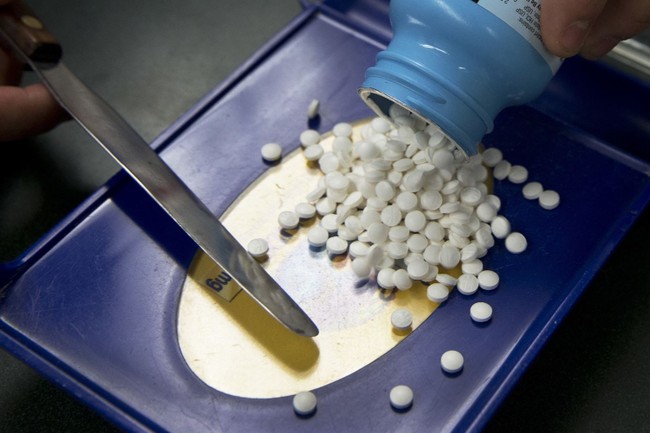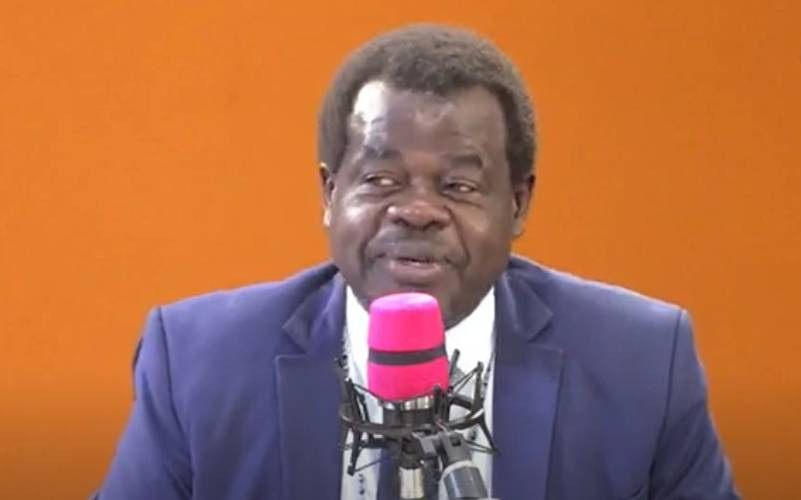In Evanston, Illinois, where redlining excluded the city’s Black residents from homeownership, 16 Black families — randomly selected from 600 who applied — were given tax-free grants this year to be used toward a home.
California launched its reparations task force in 2021, to determine how the state can compensate Black Californians descended from those formerly enslaved.
Dozens of colleges and universities, including Georgetown, Brown, and Harvard, are facing pressure from students to examine their ties to slavery and give reparations. A judge ruled earlier this year that the three known living survivors of the 1921 Tulsa white mob massacre could go forward with their reparations lawsuit, despite a motion by the defendants, including the city of Tulsa, to dismiss the case.
Advocates continue to demand action on reparations from the federal government. But local governments and institutions aren’t waiting to try their hand at reparative justice. Following the social justice uprisings of 2020, cities including Asheville, North Carolina, Providence, Rhode Island, and Burlington, Vermont, established reparations commissions and task forces. Voters in Greenbelt, Maryland and Detroit approved commissions to study reparations through ballot measures.
While these efforts have been applauded as first steps, some reparations advocates worry that they aren’t reparations at all.
Since localities can’t afford what experts say is the “true cost” of reparations, these smaller initiatives might only detract from the broader call on the federal government, and could weaken the case for wider reparations by allowing the federal government to dodge accountability, since they might argue that the local efforts are enough.
On the fourth and final episode of 40 Acres, a special four-part miniseries from Vox Conversations, I explore these ideas with Indigenous philanthropist Edgar Villanueva and activist Kavon Ward. Villanueva is the founder of the Decolonizing Wealth Project and creator of the Case for Reparations initiative, which funds reparatory justice projects across the country. (He is also on the board of the Robert Wood Johnson Foundation, which provided a grant to Vox to support the miniseries project.)
Villanueva, who is a member of the Lumbee tribe and whose philanthropy is rooted in Native American traditions and teachings, believes that money can be healing and that individual donors and institutions have a role to play in funding efforts aimed at reparations.
One effort he funded is Justice for Bruce’s Beach, which called for the return of Bruce’s Beach — a property California seized from a Black family almost 100 years ago via eminent domain — to the descendants of the original owners. The effort’s leader, Kavon Ward, called for the state to return the property and eventually succeeded, launching the organization Where Is My Land, which is helping other Black families reclaim property that was stolen from them. I talked to Ward about how various cities and states are repaying Black people for what was taken from them and whether this should be considered reparations.
Below is an excerpt, edited for length and clarity. As always, there’s much more in the full podcast, so listen and follow Vox Conversations on Apple Podcasts, Google Podcasts, Spotify, Stitcher, or wherever you listen to podcasts.
Fabiola Cineas
It’s 2020 and Kavon Ward has set her sights on Bruce’s Beach and returning that land to its rightful owners. The first step? Figure out who exactly had the power to return it.
Kavon Ward
We tried to figure out what we could do legally and legislatively, and then I thought, okay, so they need a lawyer. We introduced them to Public Counsel. Public Counsel is a nonprofit organization in DC that provides legal assistance for folks who can’t really afford legal representation. They’re essentially a conduit between the law firms and the families who can’t afford attorneys. So we got them connected with them to help them get a lawyer. And then we tried to make changes, legislatively, thinking that the city of Manhattan Beach actually had the power to give the land back.
Fabiola Cineas
Turns out, the city didn’t have that power.
Kavon Ward
The Bruces owned the land, two plots of land. It’s now a lifeguard training facility. And so once we learned that the city of Manhattan Beach actually had no control over that land because they had transferred it to the state of California and the state of California later transferred it to the county, we knew that our approach needed to be different and needed to shift.
Fabiola Cineas
But there were other roadblocks they hit along the way.
Kavon Ward
One of the things we decided to do was to have a march and a protest in front of Manhattan Beach City Hall and to march to Bruce’s Beach. And that is when [Black Lives Matter] LA helped out. The national BLM founder, Patrisse Cullors, stepped in and decided to help us strategically. Once that happened, the city of Manhattan Beach, essentially, made me out to be a terrorist.
Fabiola Cineas
And this is where things took a turn. Both for Kavon’s life — and for the future of Bruce’s Beach.
Kavon Ward
I felt that it was a threat on my life. People impersonated me online, created false accounts, made it seem as if I was saying something that would make other people come after me.
It just got really, really, really bad to the point where I felt like I needed to purchase a firearm to protect myself and my daughter as a single mother at Manhattan Beach. The other white women in the group were anti-gun and they didn’t like that. They were opposed to me getting a gun. Because they didn’t take into account positionality, right? Like, they were white women for the most part, not living in Manhattan Beach, and with husbands. So they didn’t have to worry about that type of threat on their lives. When I learned that they were going to leave the movement because I was going to purchase a firearm, I said, you know what? You guys leave. Then I started Justice for Bruce’s Beach.
Fabiola Cineas
And that’s when even more work began.
Kavon Ward
We started a petition [and] started making more noise so that we could get the attention of the LA County Board of Supervisors, and Janice Hahn, who at the time represented that area. She heard the demands and she decided to step forward and and do what was right.
And she committed to making sure that policy change was created so that the land could be transferred back to the Bruces. And that’s where [California state] Sen. [Steven] Bradford stepped in and he created SB 796.
Fabiola Cineas
It took a lot of work to get this done. And the work wasn’t initially funded. The money that helped Kavon came in the form of grants.
Edgar Villanueva
The folks who are part of Justice for Bruce’s Beach and the organization Where Is My Land have been working for a long, long time to make this happen. And so long before our fund existed. I don’t want to take too much credit there, but what I will say is we were honored to move two grants to this organization.
Fabiola Cineas
That’s Edgar Villanueva. He’s an Indigenous philanthropist and founder of the Decolonizing Wealth Project, an organization working to disrupt philanthropy through reparative giving.
Their Case for Reparations initiative has given millions to nearly two dozen organizations that are leading campaigns to achieve reparations.
Edgar Villanueva
When we made the first grant to Justice for Bruce’s Beach, I remember getting a video recording from Kavon Ward, who was just in tears and said this is the first time [they’ve] ever received funding. And so folks have been doing this work for free. Nobody is making a lot of money doing reparations organizing. But this work is deeply connected to healing and what people feel like they need spiritually to move forward and to right a wrong.
Fabiola Cineas
Over and over it becomes clear that one thing is at the center of reparations: Money. Money owed. Money for losses. And even if capital isn’t a cure-all, from Edgar’s perspective, money can be medicine. Through disruptive philanthropic efforts, it can heal wounds.
Edgar Villanueva
We are up against a major paradigm shift that is needed, to understand that colonization actually is something that was very harmful, and the impacts of global colonization and colonization that’s been happening on the land here.
It is the erasure of cultures. It is a genocide of peoples, and it’s all deeply connected to wealth. And so when we talk about decolonizing wealth, it is acknowledging that the way that wealth has been built historically is deeply connected to this force of colonization.
And so to decolonize, we are acknowledging the truth of how wealth has been acquired. And we are bringing an awareness of the harm of all of that, and the trauma of all of that. And we are beginning a process, of beginning to think about how we heal or repair that harm.
Fabiola Cineas
A lot of this is colored by his own background. Edgar is Lumbee. They are the survivors of several Native American tribes who lived along the coast of North Carolina and were the first point of contact for Europeans in the late 1500s. For much of his life, Edgar says he had to assimilate to survive.
And though being Native American meant dealing with an identity crisis for much of his life, Edgar arrived at a point where he launched a journey to decolonize himself and unlearn harmful stereotypes about his Native American heritage. That also meant starting on a journey to reclaim what he believes is his people’s share of resources.
Edgar Villanueva
As a Native American working in the philanthropic sector, this is a $1 trillion industry. I always held these contradictions. There’s so many contradictions, where this is a charitable sector, but I’ve always been pretty aware that the capital that I have access to is a byproduct of capitalism.
Philanthropy exists because rich people, rich corporations, were able to create foundations or funds, get major tax write-offs, and then some good things could happen without money. And so I could definitely offer critiques about whether or not philanthropy as it exists today in the United States should even exist or not.
But again, I’m an incrementalist in a lot of ways. And so I’m like, well, I have access to this money now. What’s the best I can do with it? Well, I’m supporting people who have a vision for something far more radical and amazing. On the other side of all of this, there has always been a role for philanthropy in our communities as Native people, the way that we take care of each other, the reciprocity, the thought that if I ever needed something, I know my people will be there for me.
Fabiola Cineas
I asked Edgar if he thinks philanthropy can really make a big impact without assistance from the government in this space. When we think about reparations, can we make a big impact without the federal government’s help?
Edgar Villanueva
Yes, and no. Philanthropy has often, and maybe has always, played a role in being a catalyst for civil rights causes. There are lots of anecdotes looking back over history where donations and foundations have played a role in supporting advocates and organizers to see social change. But it is a small fraction of the amount of money and resources and power that is held by the federal government. I see philanthropy as a catalyst.
The fund that we’ve created, the Case for Reparations Fund, is fueled by foundations and donors who have supported us in moving $4 million so far. Those funds have been highly impactful, and the foundations that are taking on our reparative philanthropy lens have really shifted significant resources to communities in a whole new way.
I had a lot of discomfort as a Native person, not being able to view institutional philanthropy or practice grant-making in a way that aligned with those values. Over time I got physically sick because of the contradictions. I didn’t even know if I could do this work. I felt like I was a part of something that was not having as much of an impact as it should because there wasn’t a truth-telling process around what was really happening.
Some folks say that philanthropy is sort of like reputation laundering in some ways. And the only approach I know to move forward is to tell the truth about it, right? There’s a lot of things we cannot undo, and this wealth is here now. Part of this is really coming to terms with history, and we’ve all inherited this history that we’ve got to take ownership of. We need to tell the truth. We need to numb the pain. We need to sit in grief around that. And then we need to think about, well, what can we do today with all of this wealth in the form of repair?





















Discussion about this post